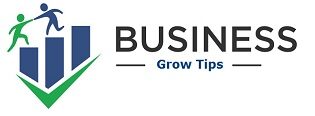Across the country, civil courts render judgments that often include monetary awards. The winning parties, also known as judgment creditors, have the legal right to collect those awards. How do they go about doing so? What tools do they have at their disposal?
Before getting into the tools in specifics, I would personally recommend not messing around if you are on the losing end of a civil judgment. You might be able to delay payment for a time, but if you have the resources to pay and your creditor decides to turn the case over to a judgment collection agency, you are not going to win.
Judgment collection agencies, like Judgment Collectors out of Salt Lake City, UT, have access to collection tools that could make your life very uncomfortable. You are far better off paying what you owe, even if it means making monthly installment payments over several years.
Tool #1: Garnishment
The easiest tool to use, in states where it is allowed, is garnishment. Wages and bank accounts can both be garnished. Under a wage garnishment scenario, an order compelling your employer to withhold a certain amount of your pay is issued. The withheld money is forwarded to the creditor. This continues until your debt is paid.
In a bank account garnishment scenario, an order compelling your bank to freeze your financial assets is issued. Those assets are then forwarded to the creditor. Garnishment can take a long time to satisfy a debt, but it is effective, nonetheless.
Tool #2: Property Searches
Judgment Collectors says that judgment creditors and collection agencies alike make generous use of public property searches in hopes of finding properties that can be leveraged for payment. It is an effective strategy because all property transactions become public records. And in the digital age, nearly all public records can be accessed online.
Why would a judgment creditor want to know about property? Because certain types of non-exempt property are subject to liens. A creditor could place a lien on a piece of property you own, thereby preventing you from selling, transferring, or otherwise disposing of it without paying your debt.
Tool #3: Writs of Seizure
Property searches are also important if a judgment creditor intends to ask for a writ of seizure. A writ of seizure is a court order authorizing the local sheriff to seize a piece of property, sell it, and forward the proceeds to the creditor.
Note that writs of seizure do not apply just to real estate assets. They can be executed against any and all non-exempt assets including collectibles, jewelry, rare works of art, business assets, etc. Some states even allow judgment creditors to go after a debtor’s home and vehicle.
Tool #4: Skip Tracing
Just in case a judgment debtor thinks moving out-of-state is a way to avoid paying, it is not. A skilled and knowledgeable judgment collection agency employs people who are experts at skip tracing. As its name implies, skip tracing is the practice of tracking down people who have decided to skip town.
Skip tracing is employed by bounty hunters, private detectives, and collection agencies. The details of how it works are kept under wraps for obvious reasons. Needless to say, an experienced skip tracer can locate virtually anyone if given enough time.
If you ever find yourself on the losing end of a monetary judgment, save yourself the trouble and pay up. You do not need the hassle of being pursued by a judgment collection agency or an attorney hired by the judgment creditor to collect. It is just not worth it.

